Effective Budgeting Strategies for Individuals with Low Income
To effectively utilize financial resources, expense management is a necessary skill that helps establish a reasonable and scientific income-expenditure plan. Let’s explore effective expense management plans for those with low incomes!
1 Expense allocation
Expense allocation helps you gain a clear understanding of your cash flow distribution, spending habits, and from there, identify your own unreasonable expenses and develop a financial plan for the future.
By based on your monthly spending needs, you will divide your income into different expense categories.
Building an overall plan, evaluating and following that plan will help you avoid excessive spending, and help you get rid of financial troubles. Proper expense allocation will improve your financial situation.
Let’s follow the monthly expense allocation methods below!
60/10/10/10/10 method
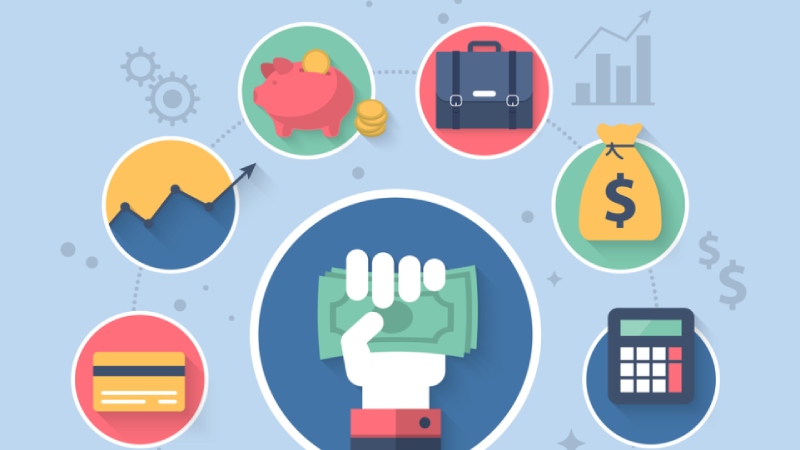 Reasonable expense allocation
Reasonable expense allocation
With this method, your income will be divided into specific expense groups as follows:
– 60% for essential needs: housing, food, transportation, utility bills…
– 10% for long-term savings.
– 10% for unexpected expenses: illness, car damage, unemployment…
– 10% for entertainment activities: shopping, watching movies…
– 10% for retirement plans.
When your financial situation is not optimistic and you still have debts, you should prioritize the debt repayment plan, in order to achieve financial freedom as soon as possible. Set aside 10% for retirement plans. Then tighten your spending, only spend when necessary or when there is an increase in income.
After completing the debt repayment, start building a savings plan for retirement.
20/80 method
This 20/80 method is a relatively simple expense management method, you just need to divide your income into 2 parts with the following proportions:
– 20% of income for investment or savings. This is considered a “frozen” fund, you cannot use it for any personal daily needs. This fund is only used for investing and saving for the future.
– The remaining 80% is used for daily life needs.
However, this method only achieves maximum efficiency when you have paid off all personal and bank debts. Because if you still have debts, this 20% saving fund is not reasonable and cannot be guaranteed.
If your income is not high enough, the 80% of income may not be enough to meet your daily needs, in that case, you can adjust and reduce the percentage for the savings fund. The reasonable number is from 10 – 15%.
 The 20/80 principle
The 20/80 principle
Assuming that the monthly income is 6,000,000 VND and there are still unpaid debts. You can allocate expenses into 3 parts: 10% (600,000 VND) for the savings fund; the next 10% (600,000 VND) is for the debt repayment fund or emergency reserve fund; And the remaining 80% (4,800,000 VND) is for personal expenses. Specifically:
– Rent: 800,000 VND
– Food: 2,000,000 VND
– Transportation: 400,000 VND
– Utility bills: 200,000 VND
– Healthcare: 200,000 VND
– Shopping: 800,000 VND
– Family expenses: 400,000 VND
Half and half method
Similar to the 20/80 method, in this method, your monthly income is also divided into 2 parts, however, it does not specify the allocation percentage for each expense category, but depends on the individual needs, different monthly spending needs. Specifically, the 2 parts will be divided as follows:
– Part 1: Allocate for daily living expenses.
– Part 2: Reserve for savings, emergency fund…
For example, with a monthly income of 6,000,000 VND as mentioned above. You can allocate as follows:
– 75% of income (4,500,000 VND) for daily living expenses.
– The remaining 25% of income (1,500,000 VND) for savings, emergency fund.
With 75% of income in the daily spending category, classify into necessary and unnecessary expenditures, for example:
Necessary expenditures:
– Rent: 800,000 VND
– Food: 2,000,000 VND
– Transportation: 500,000 VND
– Utility bills: 200,000 VND
– Sports: 300,000 VND
– Family: 700,000 VND
Unnecessary expenditures:
– Shopping: 700,000 VND
– Gifts, charity, birthdays: 400,000 VND
– Entertainment: 200,000 VND
– Incidental expenses: 200,000 VND
2 Expense prioritization
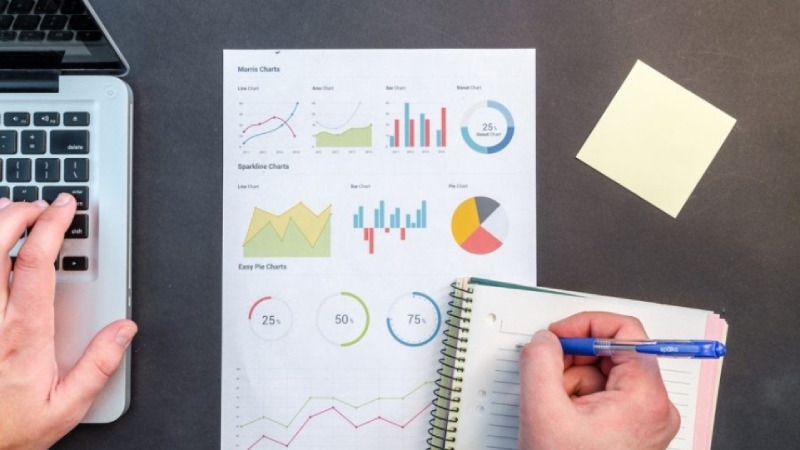 Setting up expenses
Setting up expenses
Expense prioritization means prioritizing payment for necessary expenses that you have listed monthly. Necessary expenses are mandatory expenses that must be paid or if not paid will cause many problems. For example:
– Rent
– Food
– Transportation
– Utility bills
– Healthcare
– Education
You should list the specific amounts and set aside a portion of the income according to the allocated list and set it aside to ensure discipline in spending. The remainder is reserved for unnecessary expenses and savings.
However, you also need to allocate the maximum amount for unnecessary expenses, avoid excessive spending and forgetting to save money.
3 Regularly update and track spending transactions
Most people often neglect to update and record expenses due to laziness and lack of awareness of the importance of regularly updating spending transactions.
 Regularly recording expenses
Regularly recording expenses
When you do not have the habit of recording all your expenses, the financial allocation plan you have made cannot be implemented.
In reality, many times you spend without controlling yourself, then do not realize and forget about those expenses. When your finances are running out, you start to panic and blame yourself.
Therefore, you should create a habit of recording and updating regular income and expenses, even the smallest expenses like parking fees, to fulfill the planned budget.
Many people often overlook small expenses, however, keep in mind that “accumulate small things to make a big difference,” each small expense if not controlled will become a wasteful expense that has a significant impact on your allocated plan.
4 Develop the habit of using cash
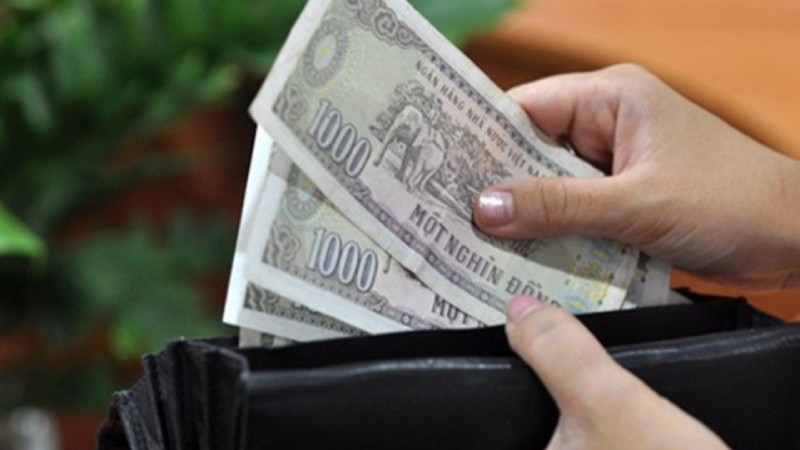 Developing the habit of using cash
Developing the habit of using cash
Nowadays, due to convenience, more and more people prefer to pay by card or payment apps instead of cash. However, using these cards is very difficult to control spending because many times you will not be aware of the fact that you have “spent a lot of money” on wasteful expenses.
When paying in cash, you easily realize spending habits and the amount of money you need to spend. Therefore, developing the habit of payment in cash will bring many benefits in managing and tightening spending.
5 Deal with debts
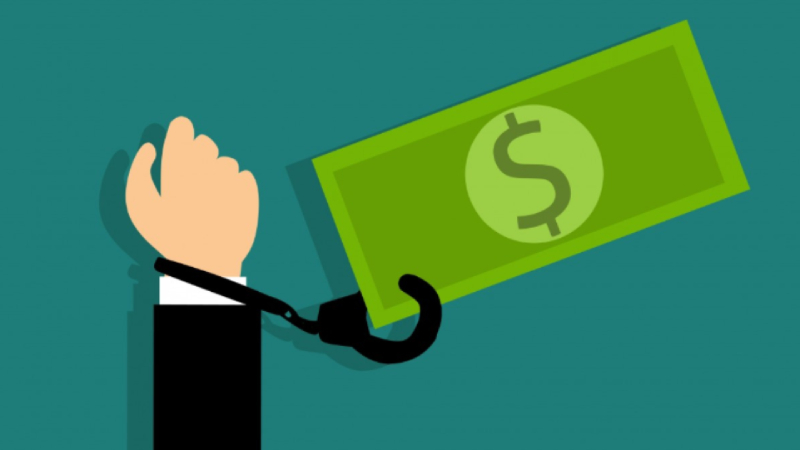 Debts are the reason you cannot save money
Debts are the reason you cannot save money
When you do not have a clear expense plan, you cannot control income and expenses. That is one of the reasons that put you in a situation of debts.
Without control of income and expenses, you are likely to borrow from friends, colleagues, and relatives to pay for unnecessary personal needs such as shopping, travel, entertainment…
Gradually, these expenses will become a habit that is difficult to control and your income will be used unreasonably due to this bad habit.
6 Establish an emergency fund
To effectively manage monthly expenses, you should establish a monthly emergency fund. Note that the emergency fund is completely different from the savings fund.
The savings fund is used to accumulate capital for the future such as travel, buying a car, buying a house, getting married, having children… While the emergency fund is used to solve unexpected risks in life such as illness, accidents, car breakdowns, unemployment…
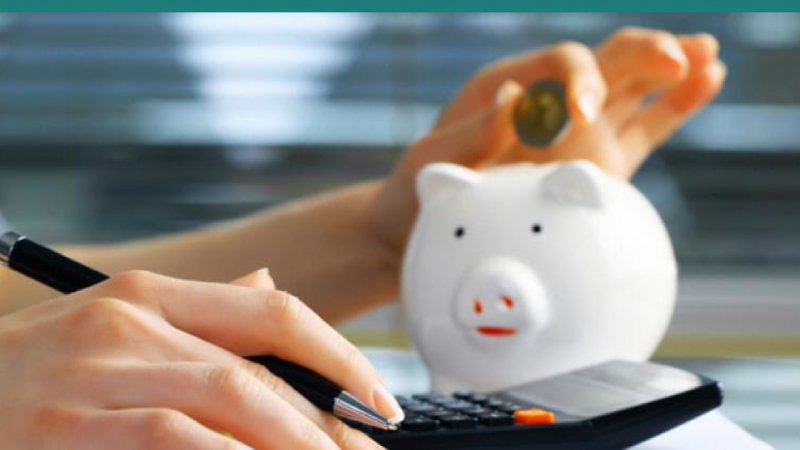 Establishing an emergency fund to manage income and expenses
Establishing an emergency fund to manage income and expenses
When planning monthly expenses, set aside a portion of your income for the emergency fund. Depending on the monthly income of each person, this emergency fund ratio may vary, it can be 5%, 10%, or even more.
You can keep the emergency fund in your bank account, not in a savings account, or if you have a savings account, do not fix it. Because this emergency fund will be used for unforeseen events. If you have a fixed savings account, when you need money, you will regret the interest and not withdraw it, from which debts will arise.
7 Use financial management tools
Instead of traditional recording of income and expenses on paper, you can use financial management tools to conveniently and quickly update income and expenses.
Each time you make a purchase, you simply enter it into the app, the balance and expenses will be calculated reasonably, and you can even view your expense chart. From there, you can evaluate whether your expenses are reasonable or not.
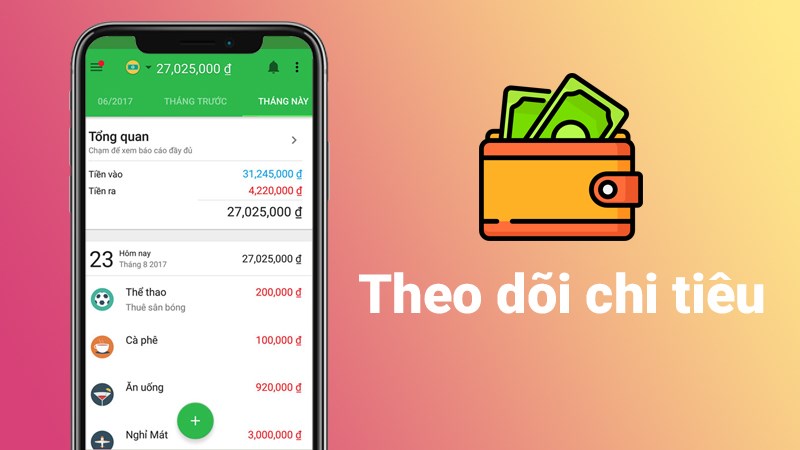 Financial management tools
Financial management tools
There are currently many expense management tools such as Money Lover, Misa Expenses Notebook, Mint, HomeBudget…
Each app will have its own features and interface, but all aim to better manage and control personal finances. Depending on your needs and purpose of use, each person will have suitable choices.
Refer to some financial management support apps below to choose the most suitable app for yourself!
With the above, we wish you can manage your finances in the best way possible!
>>
>>
>>
The post https://meo.tips/lifehacks/effective-budgeting-strategies-for-individuals-with-low-income/ appeared first on Meo.tips.
View more from Meo.tips:
10 Best Travel-Friendly Beauty Products to Pack for Tet HolidayExplore 12 Amazing Destinations for Biking Trips
7 Must-Have Tech Gadgets to Bring on Tet 2022 Trip
Explore the Remarkable Sites of Tien Giang: A Tourist’s Guide
10 Ideas to Ring in the Tet Holiday at Home
Exploring the Natural Wonders of Vinh Long: Rivers, Gardens, and Charming Landscapes
Discover the Most Popular Suitcase Brands in Vietnam Today – Top 12 List
“Explore the Beauty of Top Tourist Attractions in Quy Nhon – Binh Dinh – A Virtual ‘Living’ with Thousands of Likes”
Understanding the Uses and Benefits of Essential Oils
Tips for Wearing Comfortable Shoes Without Foot Pain
Advice on Using Facial Cleansers for Acne-Prone Skin
“Try These 5 Easy Natural Remedies to Help Fight Acne”
Tips from a Dermatologist on Washing Your Face for Reducing Dark Spots
How to Reduce Wet Clothes Drying Time and Eliminate Musty Odors
The 10 Most Tempting Snacks to Try When Visiting Da Lat
5 Delicious Tuna Eye Recipes for Your Family Meals
4 Tips for Making Medical Declarations Online with Phones and Computers
“Surprising 18 Life Hacks You Didn’t Know About”
Handling Different Fever Temperatures in Babies
Transferring Pictures from a Phone to a TV: 8 Simple Tips for Everyone
Comments
Post a Comment